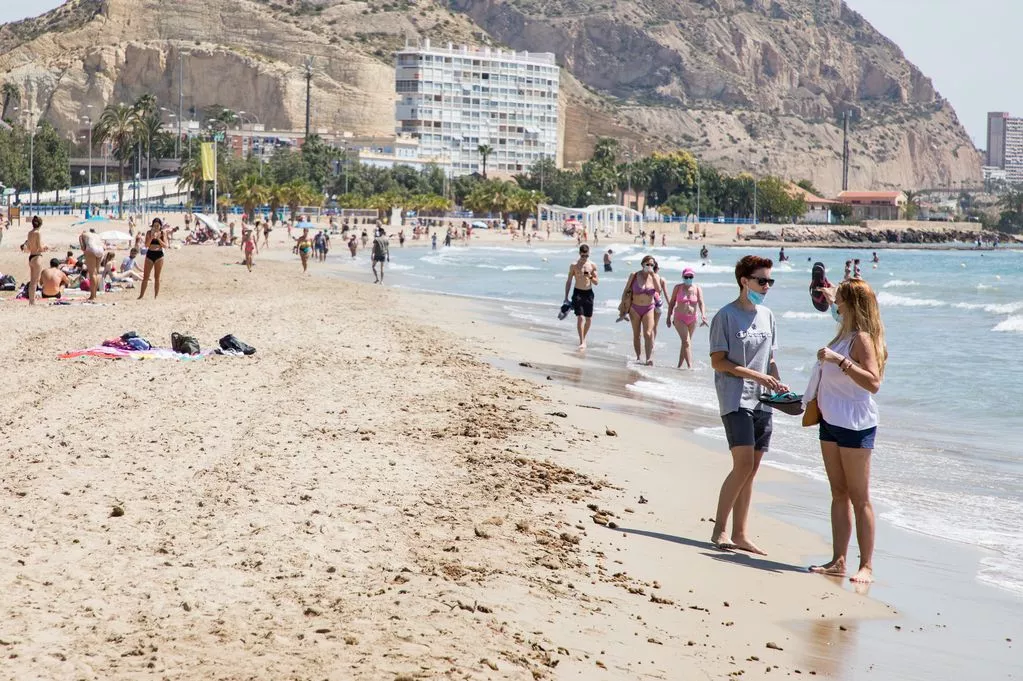Emerging Rules for Tourists in Popular Mediterranean Destinations
New regulations are being introduced across well-loved holiday hotspots, impacting British visitors in countries such as Spain, Italy, Greece, and Portugal. These adjustments aim to regulate illegal holiday rentals in response to growing concerns about overtourism and its effects on local communities.
Crackdown on Illegal Holiday Rentals
Authorities in these sought-after regions, consistent with similar initiatives in France, the Netherlands, and beyond, are intensifying efforts to manage unlicensed properties. Spanish authorities are taking notable steps following backlash from local residents who feel overwhelmed by the influx of tourists. Problems such as surging rental prices have led to mounting hostility towards short-term rentals.
For instance, in Majorca, local housing markets have witnessed a staggering 15% price increase over the past year, prompting discontent among residents. This uptick is largely attributed to the rising demand for vacation accommodations, squeezing out local families.
In response, Spain and its Mediterranean counterparts are implementing stringent measures. These include enhanced inspections, new licensing protocols, and deeper collaboration with rental platforms to eliminate the pitfalls of illegal short-term lets. In fact, one report indicated that about 7,000 rental apartments in Spain’s Balearic Islands are still operating illegally despite warnings of heavy penalties.
A Clear Message to Tourists
The message from local authorities is clear: legal tourism is welcome, but it must respect the rights and needs of residents. This approach aims to foster a fair economy that benefits both legal operators and local communities.
Spain’s housing situation has reached its threshold, with the government declaring it a “social emergency.” Officials predict the necessity of constructing between 600,000 and one million new homes over the next four years to meet the housing demands of the population.
Broader Implications on Tourism
The cost-of-living crisis is also affecting the tourism landscape, with a significant portion of the Spanish population indicating they cannot afford vacations. This situation adds substantial pressure to the local tourism economy and the stakeholders involved.
Barcelona is at the forefront of these regulatory changes, with a goal to phase out tourist apartments and ultimately shut down licensed short-term rentals by 2028. Mayor Jaume Collboni announced that the city council would not renew any tourist-use apartment licenses after they expire in November 2028, symbolizing a robust shift in tourism management priorities.
Some areas, especially the Balearic Islands, are seeing decreases in tourist numbers attributed to these protests and regulations. Entities such as the Mallorca Hotel Business Federation (FEHM) report a noticeable drop in visitor numbers, highlighting Soller as one of the municipalities experiencing this decline. Industry representatives across hotel, hospitality, and transport sectors shared that they have felt the pinch from reduced tourist traffic, with excursions suffering a considerable drop in sales this summer.
| Impact Area | Effect |
|---|---|
| Rental Prices | Increased up to 15% |
| Illegal Rentals | 7,000 unlicensed rentals still operational |
| Tourist Numbers | Notable drops reported in tourist activity |
| Local Sentiment | Rising frustrations among residents |
Understanding the Historical Context
Since the mid-20th century, the Mediterranean has undergone a significant transformation thanks to mass tourism. Initially, the sector became intertwined with industrial development, witnessing a boom in beach and leisure tourism post-World War II. Spain, with its sunny climate and attractive coastline, emerged as a pioneer in this movement.
The mass influx of tourists altered local economies and landscapes, leading to both development successes and challenges. This ongoing trend also brought about larger concerns related to sustainability and responsible tourism, raising questions about how to balance growth while preserving local culture and the environment.
Future Outlook for Mediterranean Destinations
Looking forward, these new regulations signify a fundamental shift towards prioritizing sustainable tourism that maintains a delicate balance between local welfare and tourist expectations. As destinations like Spain and Italy readjust their tourism policies, the proactive measures taken are likely to influence how tourists engage with these environments long-term.
In light of these regulatory changes, it’s essential for visitors to understand the context and implications surrounding them. Being a responsible tourist is key to respecting local communities and ensuring continued access to beautiful destinations for future generations.
For those captivated by the allure of the Mediterranean, opportunities abound. Exploring this region remains a breathtaking experience, enhanced by responsible tourism practices. Here, nature, culture, and adventure intersect beautifully, showcasing why this area remains a top travel choice.
For optimal experiences in regions where boats and yachts are prevalent, consider checking out a service like ゲットボート・ドットコム. An international marketplace for renting sailing boats and yachts, it caters to diverse preferences and budgets, ensuring that you can indulge your passion for sailing while respecting the local environment.

 Explore New Tourist Regulations Impacting Mediterranean Travel">
Explore New Tourist Regulations Impacting Mediterranean Travel">
